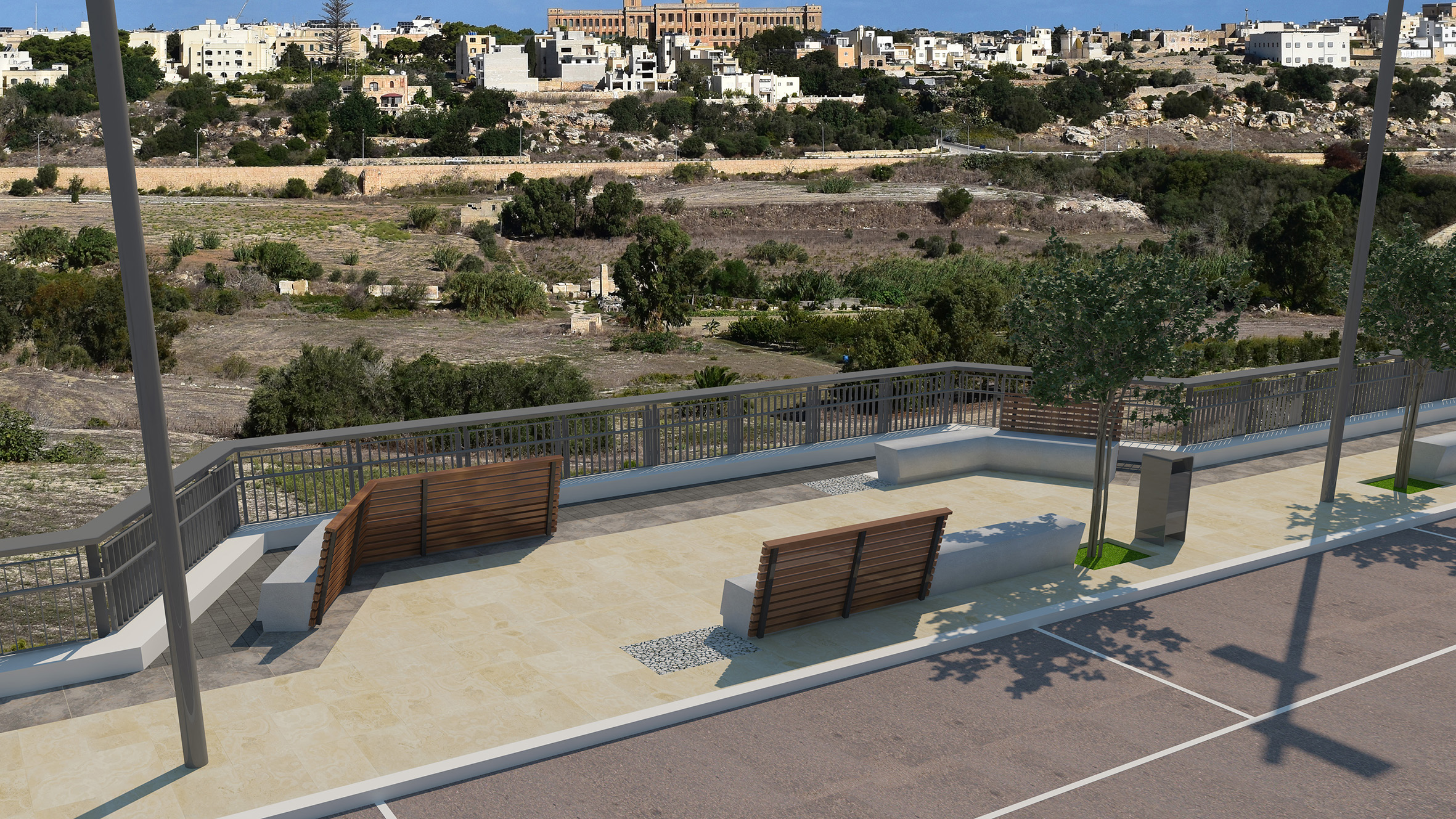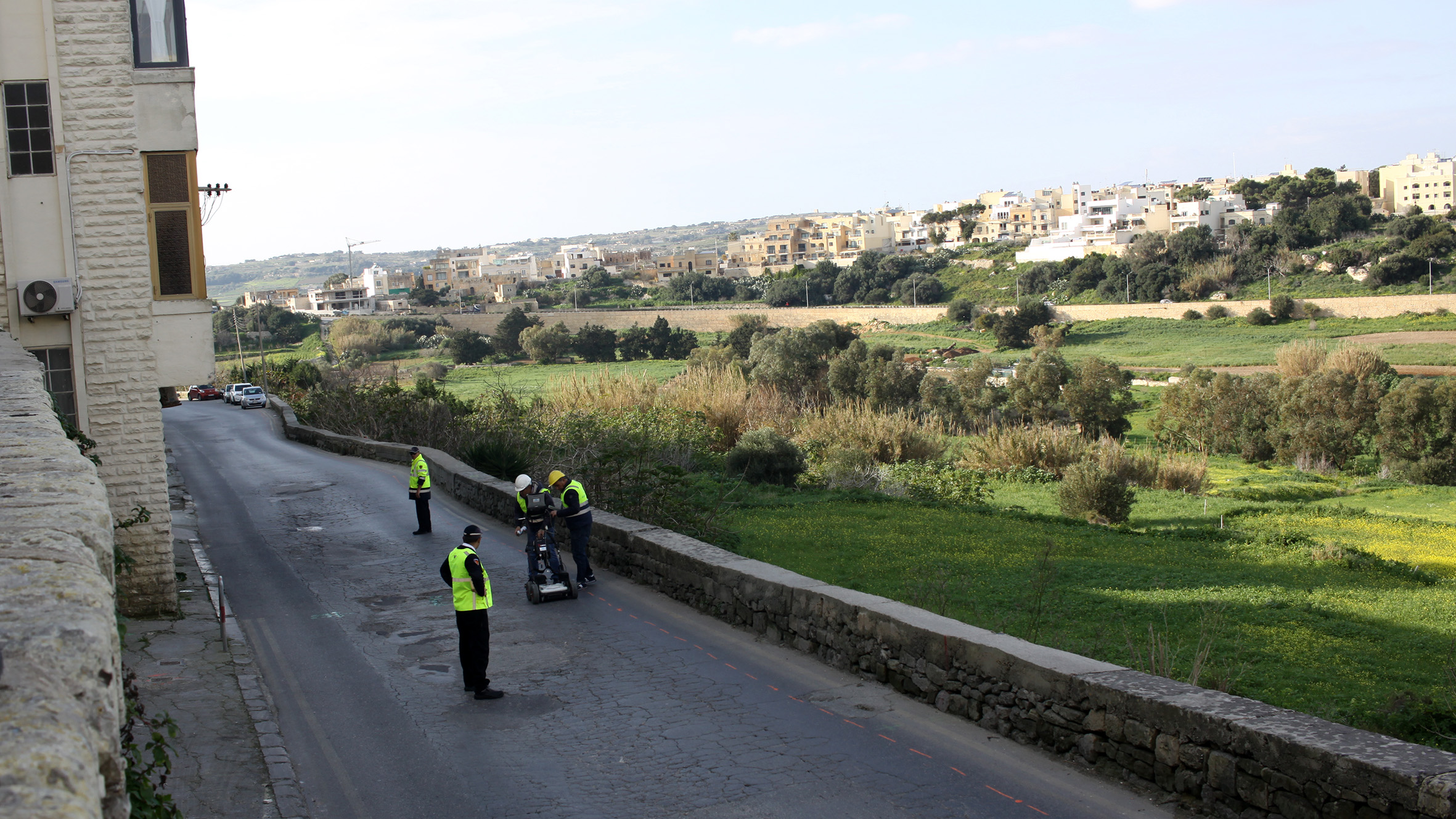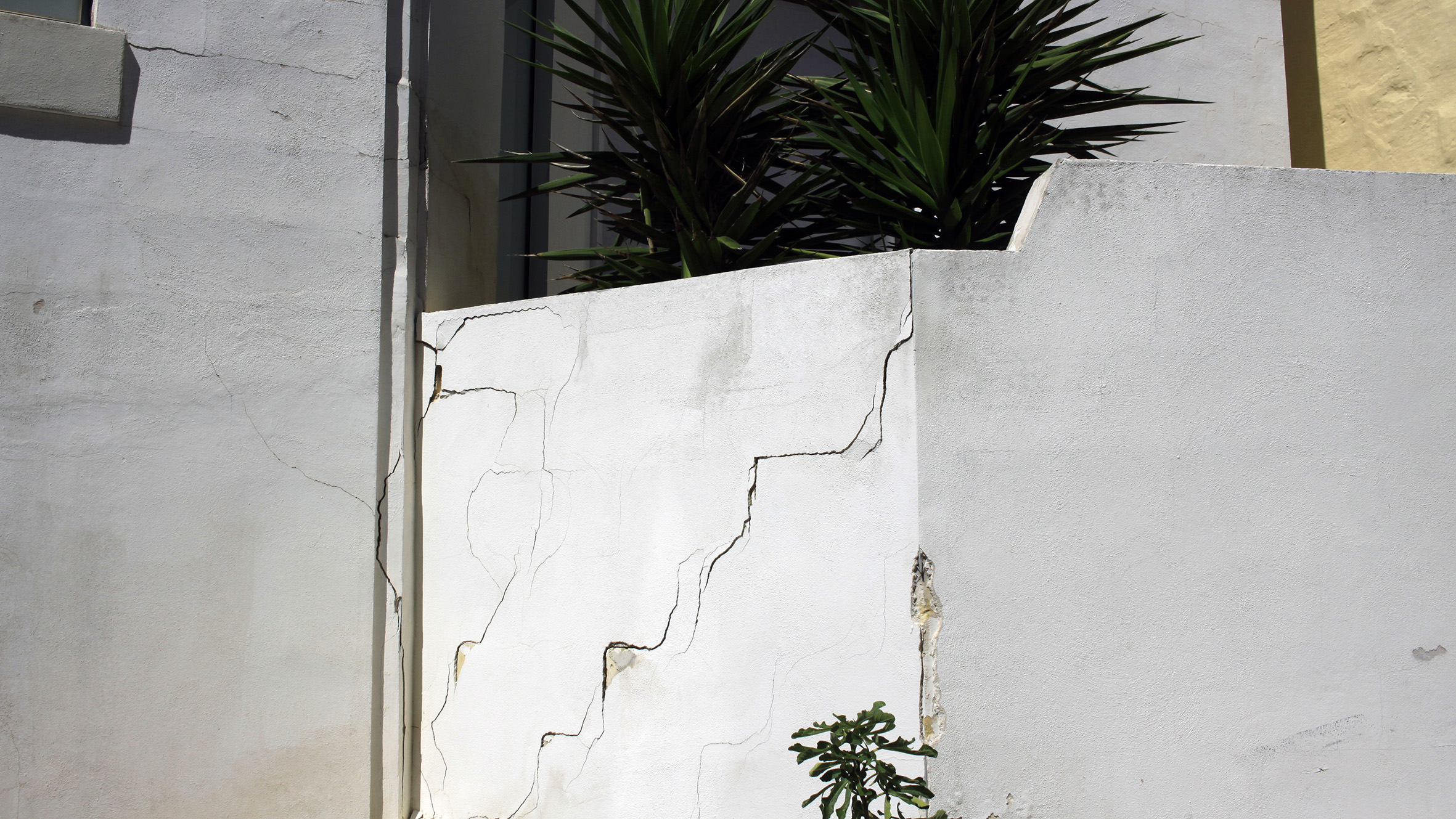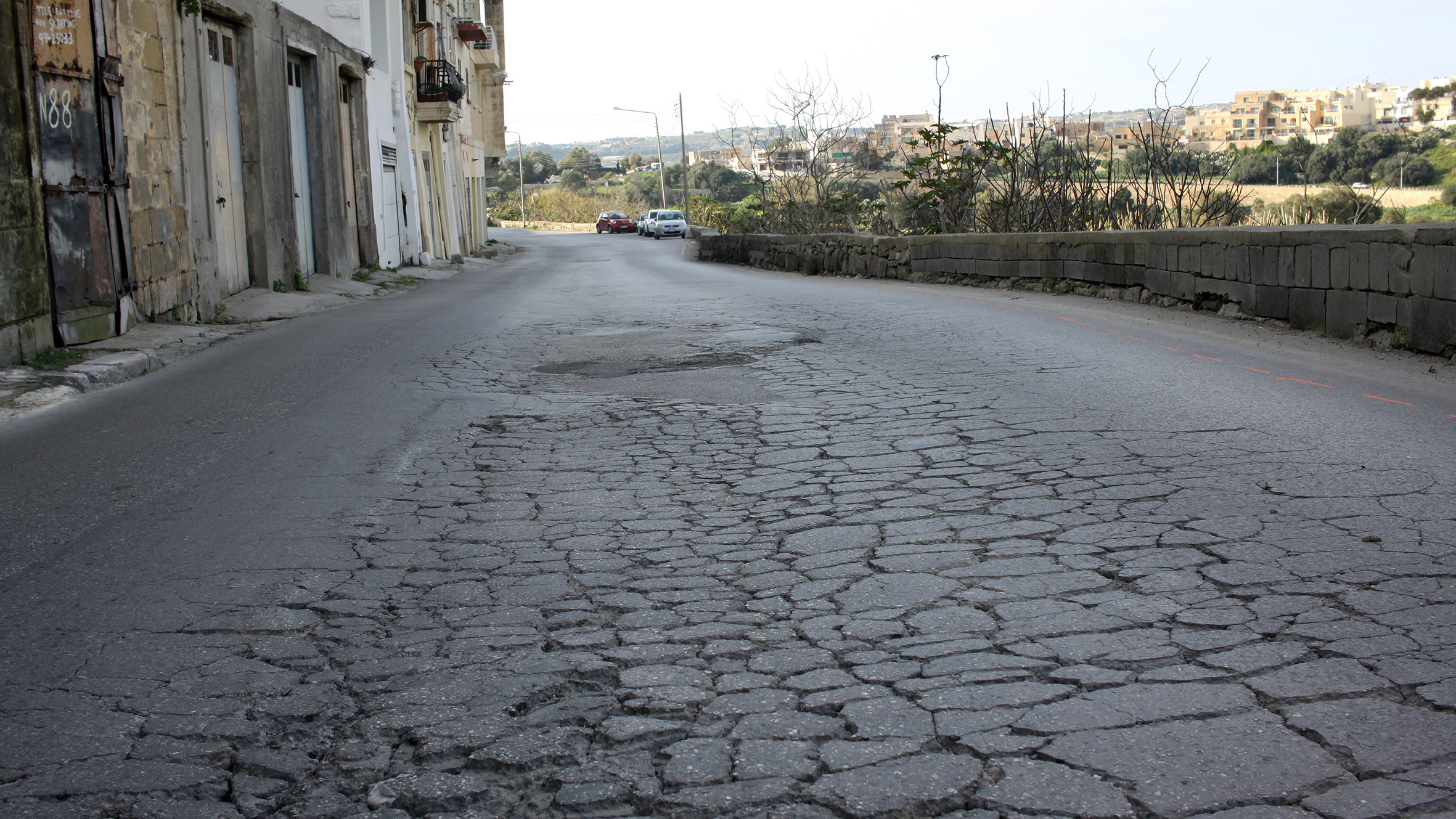
Gheriexem Belvedere Project works launched
Infrastructure Malta is starting the reconstruction of Gheriexem Road, in Rabat, to stop decades of subsidence damage to its structure and to nearby buildings, and to improve its pedestrian access with a new belvedere.
Through this €4 million investment, the agency is rebuilding this road with reinforced foundations, improved carriageway alignment and a belvedere with a footpath, benches overlooking the valley and landscaped areas with many new trees. Whilst the two-lane carriageway is not being widened, a narrow strip of additional land along the existing road is required for the footpath, and to embed two rows of deep concrete piles that will consolidate the road and adjacent buildings.

The structure of the new foundations and the belvedere was designed in consultation with environmental and archaeological authorities to minimise adverse impacts on adjacent fields, whilst safeguarding any buried historical remains that may exist in this archaeologically sensitive area. Archaeologists approved by the Superintendence of Cultural Heritage are monitoring the project works.
For many years, residents in this area have been calling on the authorities to stop the gradual sinking of this road along the side of Gheriexem Valley, which is causing extensive damages to their residences, some of which are in danger of collapsing. Geotechnical investigations on site confirmed that this 800-metre road is built on layers of weak, fractured rock and clay. Its old retaining wall is cracked and irregularly distorted, showing that it is being pushed outwards by the movement of the deep infill materials beneath the road. As rainwater seeps through the cracks in the road, it creates further pressure on this weak retaining wall.

The road and several adjacent buildings are at risk of collapsing, similar to what happened a short distance away, along the upper part of Saqqajja Hill, during a storm a few months ago. In view of this public safety concern, Infrastructure Malta is collaborating with the Ministry for Transport, Infrastructure and Capital Projects, which designed the project plans, and with the planning, environmental and archaeological authorities, to start the required road consolidation and reconstruction works immediately.
The agency is expediting the works to ensure that most of the underground excavation works can be completed during the dry season. Accumulation of rainwater on site whilst coring and other excavation works are in progress risks accelerating the deterioration of the road and its dilapidated retaining wall.
This week, the agency’s contractors started the preparatory archaeological excavations, before the urgently-needed structural works to consolidate this road can get underway. Archaeologists approved by the Superintendence of Cultural Heritage are supervising the digging of trial pits to survey the area’s archaeology. Based on the results of these surveys, the Superintendence will determine the method of excavation and pile coring required to safeguard any buried archaeological remains. The drilling of cores for the concrete piles will start as soon as the ongoing surveys are completed.


